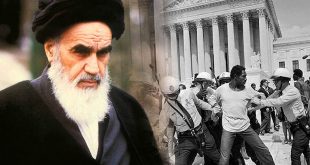The University of Chester is hosting a two-day online conference that aims to re-engage with the question of how Islam and science could, should and do relate to one another.
The field of Islam and science emerged in the 1970s with the Islamisation of the sciences movement. This was led by thinkers such as Seyyed Hossein Nasr, Naquib al-Attas, Ziauddun Sardar, and Ismail al-Faruqi, who were bringing forth various perspectives on how Islam can or should interact with modern science(s). However, the field has developed significantly since then, with many new thinkers emerging and suggesting different approaches, perspectives, and ideas. There has also been a shift of focus in the science and religion community more widely from a broader discussion about “science” and “religion,” which mostly focuses on how to relate the two at an abstract level, to a science-engaged theology approach, which looks at localised and specific interfaces, e.g. Islam and evolution, at a deeper level. Moreover, more recent scientific developments and applications have raised many questions for Muslims on the ground. The COVID-19 pandemic, for example, is a very current development which has led to some Islamic practices, beliefs, identity markers, and trust in scientific authority being questioned and discussed by Muslim leaders and the laity at large.
In light of these developments, the University of Chester is hosting a two-day online conference that aims to re-engage with the question of how Islam and science could, should and do relate to one another.
Important Data
Conference Date: 3rd – 4th April 2023
Abstract Deadline: 30th September 2022
Email: scienceandislam@chester.ac.uk
We are inviting applicants from all backgrounds who can provide viewpoints on the relationship between Islam and science from their respective disciplines. Non-exhaustively, these include: theology, philosophy, the natural sciences, Islamic studies, history, sociology, and anthropology. Submissions can be normative, constructive, descriptive, or fieldwork- oriented, provided that they are academically rigorous. The following is a list of interesting and relevant exemplar questions:
- Does the Islamic tradition prescribe a specific relationship between itself and science?
- Can or should Muslims have their own taxonomy of how to relate Islam and science?
- Should Muslims have a global stance on science, or should there be a shift to more focus on local stances, e.g., Islam and evolution or Islam and quantum physics?
- Should/could science-engaged theology be entertained from an Islamic perspective?
- How do or should Muslims resolve apparent conflicts between Islam and science?
- How are Muslim engagements with science shaped by particular cultural, political and economic contexts?
- How do Muslims experience, and what should they do about, Islamophobia in scientific contexts?
- What are the gendered dimensions of Islam and science?
- How have historical works discussed the relationship between Islam and science?
- Is there a difference between how scholarly communities and the Muslim laity in Western countries think of science in relation to their beliefs?
- How have scientific developments affected Muslim practices and beliefs on the ground? E.g. what did Muslims think of the scientific debates surrounding COVID-19 vaccinations during the pandemic?
For consideration of your proposal, please send a 300-word abstract in English to scienceandislam@chester.ac.uk along with your full name, institutional affiliation, and job title by 30th September 2022. The language of the conference will be English.
Select participants might be asked to send in full articles which will be published either as an article in a special volume of a journal, or as a book chapter in a collected volume.
If you have any questions, please email Caroline Tee at c.tee@chester.ac.uk, Shoaib Ahmed Malik at shoaib.malik@zu.ac.ae, Stephen Jones at s.h.jones@bham.ac.uk, or Saleema Burney at s.burney@bham.ac.uk.
 Ijtihad Network Being Wise and Faithful Muslim in the Contemporary World
Ijtihad Network Being Wise and Faithful Muslim in the Contemporary World
